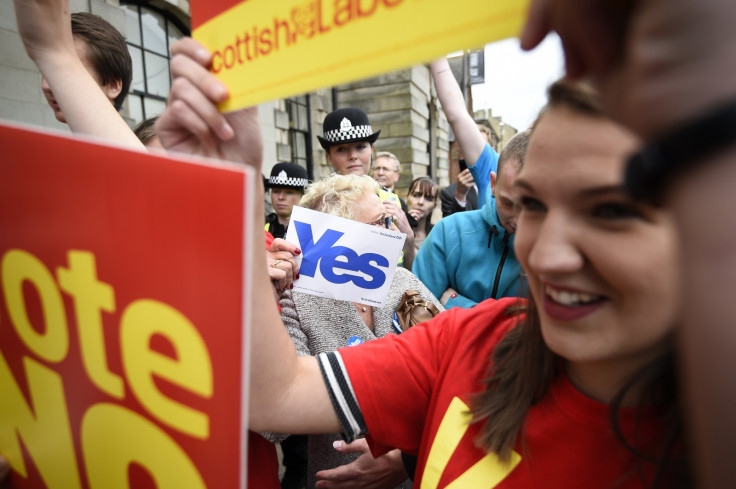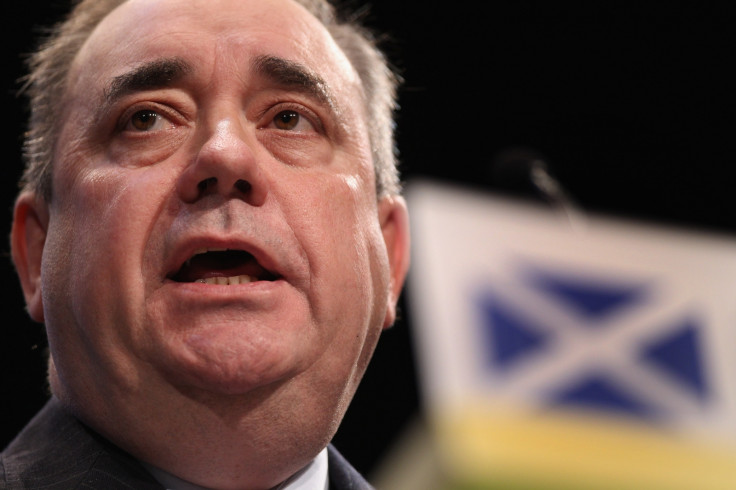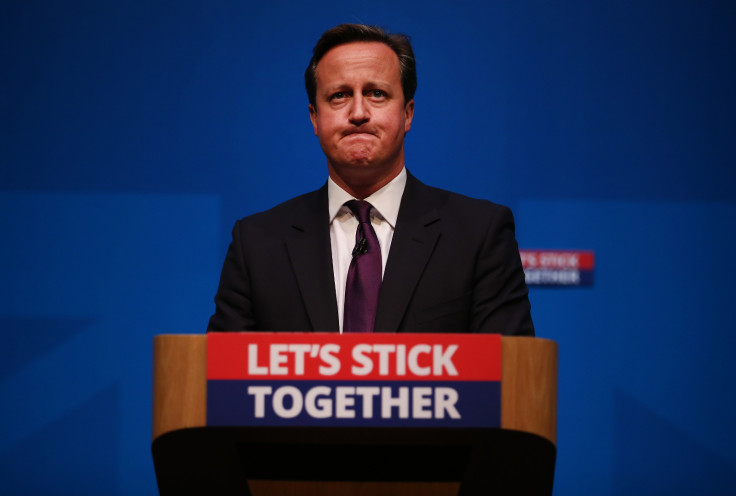Scottish Independence Result: Decisive 'No' Vote Leaves Cameron and Miliband Still Facing Big Tasks Ahead

In the end the result was decisive. Scotland used its historic, once-in-a-lifetime vote to reject independence and keep the 300-year-old United Kingdom intact.
After an unprecedented exercise in democracy which saw nationalists come within striking distance of ending the Union, engaged 97% of the electorate and produced record turnouts, the "no" vote won the day with a significant majority.
But as the full impact of the result began to sink in and nationalist leader Alex Salmond watched his dream slipping away from him, there were no champagne corks popping in Downing Street or Labour HQ.
David Cameron and Ed Miliband may have escaped the threats to their own leaderships which would have followed a "yes" vote, but their much-criticised campaigning, marked by initial complacency quickly followed by panic, has left them both weakened.
It is now Alex Salmond's leadership which is in the spotlight amid suggestions he may stand down, while he and his deputy, and likely successor, Nicola Sturgeon, have the job of bringing their country together and healing the divisions sparked by the history-making decision.

Both will be praised for the way they conducted such an energising, engaging campaign and overturned an early 22 point lead for their opponents to, at one point, appearing close to pulling off a sensation.
Sturgeon, in what amounted to an admission of defeat at 5.20am, said she was deeply, personally disappointed by the result, but would be willing to work with Westminster on hammering out details of more devolution to Holyrood.
And there will be the inevitable post-mortems and recriminations over alleged bullying and intimidation by the so-called Unionist conspiracy of Westminster politicians, media and businesses with threats over the currency, jobs and investment.
As the campaign progressed and the nationalists raced up on the outside rail, the three big Westminster party leaders faced the prospect that they would be the men on whose watch the Union was lost.
They were spooked into offering major concessions to Scotland in the now-famous "home rule vow" which opened a constitutional Pandora's box with demands for similar powers to the rest of the UK to balance the constitution.
Disillusionment
The campaign also lifted the lid on the UK-wide disillusionment and disengagement from Westminster-led politics, exemplified south of the border by Nigel Farage's Ukip, leading many to the conclusion that a wider constitutional revolution was required to turn that tide.
And that signals real trouble ahead for the parties in both the House of Commons and Lords, where there is real opposition to any major constitutional change.
But the immediate task now facing Westminster is to agree and then deliver on that "home rule" promise, forged by former Labour prime minister Gordon Brown and published in the last days of the campaign as a desperate attempt to stop the apparent nationalist bandwagon.
But even that is no foregone conclusion bearing in mind the opposition amongst MPs and resentment at the way they were never consulted about it.
And all three parties have different plans covering big issues such as taxation and spending, and Alex Salmond has his own. The task between now and the general election will be to forge a coherent, agreed set of proposals for implementation after the 2015 poll.

Senior Tory minister Michael Gove has insisted that process will go ahead as promised. But he also suggested that, while stopping short of creating an English parliament as some Tories are demanding, there should be a wider constitutional settlement for Wales, Northern Ireland and the English regions.
There have already been powerful demands from the other nations, regions and cities for their own devolved powers. They are particularly concerned at the promise to continue the much-criticised Barnett formula of funding which, they claim, disproportionately favours Scotland.
There is also the age-old demands for Scottish MP to be barred from voting on issues that only affect the rest of the country.
That all has the potential to spark a huge debate with serious divisions within and between the political parties which could easily dominate all Westminster politics for months, even threatening to overshadow the general election campaign.
Genuine enthusiasm for federalism?
There must, therefore, be the possibility that the size of the victory for the unionists will encourage Westminster to back away from the more radical option of creating a federal United Kingdom and see the planned constitutional rebalancing abandoned or kicked into the very long grass.
And, while politicians in the other nations and regions may demand more power, there is precious little evidence to suggest their voters agree with them.
Previous attempts to create regional assemblies were roundly rejected and there has been very little enthusiasm for elected local mayors.
And while the immediate aftermath of the referendum will see the constitution dominating the political debate, it is worth remembering that politics has a tendency to move on with astonishing speed.
Today's history-making event can very quickly become next week's history.
© Copyright IBTimes 2025. All rights reserved.






















